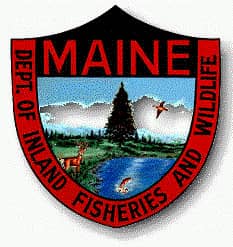Bright Outlook for This Year’s Bear Hunting Season in Maine

With the start of bear hunting season just a few days away, the Maine Department of Inland Fisheries and Wildlife expects this season to be a successful one for many hunters due to poor natural food levels for bears.
The Department is also reminding bear hunters that they are required by law to submit a tooth from their harvested bear, which helps to monitor the health of Maine’s black bear population.
Maine’s general black bear hunting season opens Monday, Aug. 27 and runs until Nov. 24. The season for hunting black bears with dogs is Sept. 10 to Oct. 26, while hunting with bait is permitted between Aug. 27 and Sept. 22.
This year, hunters also have the ability to take one bear by hunting throughout the season and an additional bear by trapping starting on Sept. 1.
While last year’s bear hunting season numbers show a low harvest of 2,400 bears due to the abundance of natural foods like berries and nut crops, this year should be a different story.
Last fall the success rate for hound and bait hunters was 27 percent combined. This year may be closer to a 40 percent success rate.
Bears have been actively foraging this summer, causing the number of conflicts between bears and humans to be higher than usual in many northeastern states. That includes Maine, where the Warden Service received nearly twice as many bear-related complaints in the first six months of the year compared to the same time period last year.
The increase in bear conflicts is an indication of poor natural food availability for the bears, which should also increase bait interest among bears and lead to more success for hunters using bait.
Because of that, this year’s bear hunting season should be a good one for longtime bear hunters as well as those people who have yet to hunt black bears and want to give it a try.
“During lean falls like this, it is much easier for hunters to establish new baits because bears are searching more diligently for high calorie food sources,” said IFW Biologist Randy Cross. “Many hunters were frustrated with hunting bears last fall when natural foods were plentiful, but this fall should be a different story for many. Some years, the bears win and others the bear hunters win – this year looks like it will be the latter”
This will be the second year that hunters are required to extract a tooth from their harvested bear, which gives the Department information about the age structure of bears in the state.
“Knowing the age of the harvested bears provides a valuable tool for monitoring the health of Maine’s black bear population,” said IFW Biologist Jen Vashon. “Having that information enables the Department to track population trends and determine the effectiveness of our management programs which contributes to a stable bear population.”
Hunters should submit the tooth at their registration station, which will provide instructions for doing so.
During the 2011 hunting season, the Department received teeth from 1,914 bears.
Hunters who submitted a tooth from their bear in 2011 can find out its age by visiting http://www.maine.gov/ifw/hunting_trapping/hunting/bearTooth2011.htm.
The oldest bear that the Department received a tooth from was a 29-year-old female, while the oldest male bear recorded was 23 years old.
The majority of the bears recorded in 2011 – 74 percent – were between the ages of one and five years old.
Like most hunted populations, older bears make up a smaller proportion of the harvest with just over half of the bears being three years old or older.
At the end of this hunting season, the Department will receive teeth from the check stations and will send the teeth to the lab. The ages of bears harvested during the 2012 season should be posted on the Department’s website next fall.
To find out more about last year’s harvest and bear tooth age reports to get more information on bear hunting in Maine, go tohttp://www.maine.gov/ifw/hunting_trapping/hunting/bear.htm.

